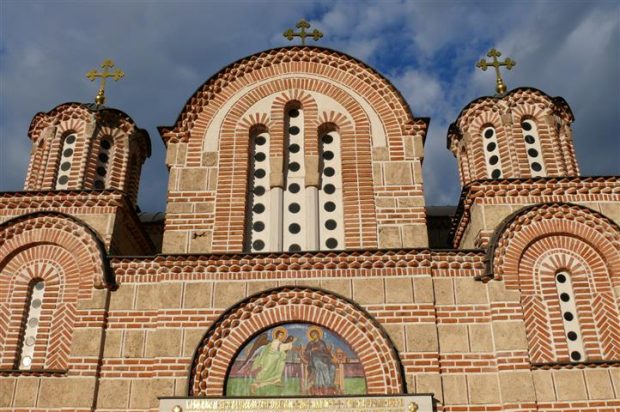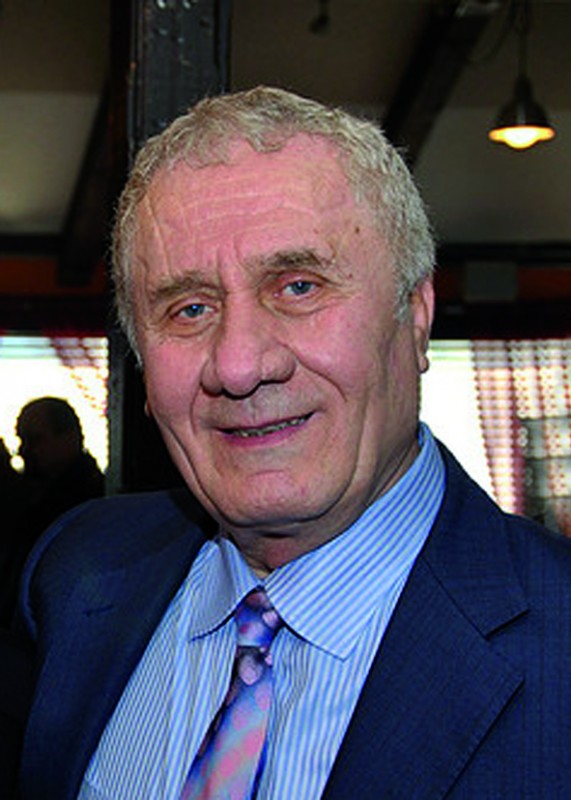 Orthodox churches and monasteries are inherent to the spiritual, cultural and historical heritage of Serbs as the people who adopted Christianity at the time of Slav enlighteners Cyril and Methodius, in the 9th century. A church is the home of living God on earth, an architectural prayer to Him by the community of faithful – the Church. In Serbian language the same word – church – is used to denote both a church as a building and a community of Christians who make up the Body of Christ. Building churches, as a form of endowment (literal meaning of the word in Serbian denotes an act of benefaction performed for the sake of salvation of one’s soul), very early became Serbian custom and tradition, primarily among the rulers and affluent members of community as well as others who were in the position to endow their wealth in the name of Christ and their people. In the medieval times, during the rule of royal dynasty of Nemanjićs, it became a matter of honour for every person occupying the throne to build as many churches and monasteries or finance the existing ones. The preserved and living churches and monasteries in all Serbian countries, in the Holy Mountain, in the Holy Land, which were built with the stone of highest quality, decorated and painted by the most prominent artists, bear testimony to this.
Orthodox churches and monasteries are inherent to the spiritual, cultural and historical heritage of Serbs as the people who adopted Christianity at the time of Slav enlighteners Cyril and Methodius, in the 9th century. A church is the home of living God on earth, an architectural prayer to Him by the community of faithful – the Church. In Serbian language the same word – church – is used to denote both a church as a building and a community of Christians who make up the Body of Christ. Building churches, as a form of endowment (literal meaning of the word in Serbian denotes an act of benefaction performed for the sake of salvation of one’s soul), very early became Serbian custom and tradition, primarily among the rulers and affluent members of community as well as others who were in the position to endow their wealth in the name of Christ and their people. In the medieval times, during the rule of royal dynasty of Nemanjićs, it became a matter of honour for every person occupying the throne to build as many churches and monasteries or finance the existing ones. The preserved and living churches and monasteries in all Serbian countries, in the Holy Mountain, in the Holy Land, which were built with the stone of highest quality, decorated and painted by the most prominent artists, bear testimony to this.
Nemanjics’ tradition of endowing reached its climax in the 14th century, during the rule of King Milutin who built and reconstructed over 40 churches and monasteries. This was the period when the custom of endowing became deeply rooted in Serbian tradition. There have been many of those who continued Nemanjićs’ tradition of endowing including those without wealth who offered their masonry skills instead. There have been the examples of the villages or entire regions pooling their resources to build churches. For it has never been a matter of the size of a gift endowed for salvation of one’s soul but the willingness to sacrifice on the part of the endower. It has been a common view that to help the other, in particular the poor or helpless, means to help oneself and that to build a temple means to invest in the imperishable. This tradition among the Serbs has continued regardless of hardships throughout the centuries of which the existing magnificent churches bear testimony.
Just as tradition has never been something that used to be and is merely recalled now but a living and constructive relationship among a community of people living in the world which God mercifully placed us in, so the act of endowing is not just a memory of our ancestors’ customs. Likewise, the Church is always One and Christ is the One Who is, Who was, Who is to come, the Pantocrator. Churches, temples, and cathedrals are His home and those destroying it destroy the Temple of His Body while those who build it build themselves in Him. Any builder and endower, both the first and the last, the rich and the poor are equal in their desire and volition to become a follower of the Fathers and like them ‘to be a blessed sprout of a blessed root and a beautiful flower of the blessed plantation…’ (Anja Jeftic).

Branko Tupanjac, a businessman from Chicago, born in Bileća, at the Congress of Serb unity in Cleveland held in September 1999 announced his willingness and readiness to be the endower of the Hercegovačka Gračanica church. Already in December 1999 he came to Trebinje to discuss the construction details with Bishops Grigorije and Atanasije and the building of the church commenced in March the following year.
“I really wanted to leave behind something valuable for the Serbs and wanted both Trebinje and Serbs as a nation to regain their self-confidence in these difficult times of war and economic weakness. So it happened and I am very happy. You cannot imagine my happiness for having achieved something I couldn’t even dream of! Now many would like to build a church, but there are no more Dučićs!”, said the endower.
Jovan Dučić once spoke of another great Serbian poet, Jovan Jovanović Zmaj, whom he revered deeply and said the following words which, now, apply to Dučić as well: “Victor Hugo said: ‘Sow the Gospel in the villages.’ Let us sow examples of love of all kinds in our country. History is nothing else but a story of great men. Let us speak highly of those great men so that the world sees how we value merits and believe in greatness. Let us build a monument to our poet who had such a significant role in our lives. Teach the children what he bequeathed on us.”
Recognizing his great love for the Church displayed through his donation for construction of the Annunciation of the Most Holy Theotokos church on Crkvina hill, the eternal abode of Jovan Dučić, the Episcopal Synod of the Serbian Othodox Church awarded Branko Tupanjac with its highest distinction – Order of Saint Sava of the First Degree.
